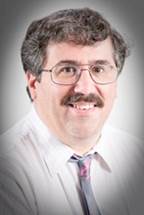|
THE SCIENCE OF CONSCIOUSNESS April 25-30, 2016 - Tucson
Pre-Conference Workshop Tuesday, April 26, 9 am-1 pm
Philosophical Theories of Consciousness
What makes a mental state a conscious mental state? Philosopher Rocco Gennaro surveys Western philosophical theories of consciousness including dualism (substance and property), epiphenomenalism, materialism, physicalism, identity theory, and eliminative materialism, as well as functionalist views such as global workspace, multiple drafts, and sensorimotor theory. Also to be covered are nondualist physicalist views including panpsychism, emergentism, Orch OR and other quantum approaches, and dual aspect theory, as well as various representational views such as first-order representationalism (FOR), higher-order thought (HOT) theory, and self-representationalism. Authors to be discussed include R. Descartes, G.W. Leibniz, B. Russell, D. Chalmers, D. Rosenthal, W. Lycan, M. Tye, W. Robinson, P. Churchland, B. Baars, F. Jackson, T. Nagel, N.Block, D. Dennett, J. Prinz, K. O’Regan, C.McGinn, H. Putnam, G. Strawson, R. Penrose, S. Hameroff, U. Kriegel, and others.
Rocco J. Gennaro, PhD University of Southern Indiana
Summary: This workshop will begin with an explanation of the general problem of consciousness and various senses of the term ‘conscious.’ Various traditional philosophical theories of consciousness are then introduced largely under the umbrella of the metaphysical distinction between dualism and materialism (or, more broadly, physicalism). For example, we will critically examine such dualist views as substance dualism, property dualism, and epiphenomenalism. On the physicalist side, we will critically examine identity theory, eliminative materialism, and functionalism. We will also discuss global workspace theory, multiple drafts theory, attended intermediate level theory, and sensorimotor theory, which are also broadly functionalist-physicalist theories themselves. Nondualist, but non-standard, physicalist views are also addressed, including panpsychism, emergentism, quantum approaches (such as Orch OR), and dual aspect theory. Finally, various versions of representationalism are presented, such as first-order representationalism (FOR), higher-order thought (HOT) theory, and self-representationalism. Some questions to be addressed are: What are the main arguments for, and objections to, the major physicalist and dualist views? What is the main reason for exploring alternatives such as panpsychism and quantum theories? What is the difference between a first-order representation and a higher-order (or meta-) representation? What makes a mental state a conscious mental state? Can any of the physicalist theories offer a viable reductionist account of consciousness? Are any of them able to solve the “hard problem” of consciousness? How does holding a dualist position help? Strengths and weaknesses of each theory are emphasized. Authors to be discussed include R. Descartes, G.W. Leibniz, Bertrand Russell, David Chalmers, David Rosenthal, William Lycan, Michael Tye, William Robinson, Patricia and Paul Churchland, Bernie Baars, Frank Jackson, Thomas Nagel, Ned Block, Daniel Dennett, Jesse Prinz, Kevin O’Regan, Colin McGinn, Hilary Putnam, Galen Strawson, R. Penrose & S. Hameroff, Uriah Kriegel, and others.
Relation to conference themes: The topic of this workshop explicitly mentions two of the “Three Roads to Consciousness” listed as a theme for TSC ’16, i.e. “Global Workspace Theory” and “Higher Order Thought.” Discussion of quantum approaches to consciousness is also obviously related to the “Quantum Brain Biology” theme. Also, critically discussing the overall disagreement between reductionists and non-reductionists is relevant to the problem of “Moving From Correlates to Causes of Consciousness.” Indeed, although the term ‘causes’ might be fine with dualists, it will also be too weak for, say, identity theorists who additionally wish to “move from causes of consciousness to the identity between physical and conscious states.”
Workshop Outline: Introduction/Terminology; Different Senses of ‘Conscious’ (approx. 15 minutes) Dualist Theories of Consciousness: substance dualism, property dualism, and epiphenomenalism (30 mins.) Physicalist Theories: identity theory, eliminative materialism, and functionalism (35 mins) Global workspace theory, multiple drafts theory, attended intermediate level theory, and sensorimotor theory (30 mins) Break (10-15 minutes) Panpsychism, emergentism, quantum approaches, and dual aspect theory (45 mins) First-order representationalism; higher-order thought (HOT) theory (30 mins) Self-representational and hybrid representational theories (30 mins) Conclusions; future directions (15 mins.)
Intended Audience: This tutorial will assume no background in any of the theories considered. The purpose of the workshop is not to present a final verdict on each theory, but rather to get a clearer picture of the interconnections between the various theories as well as their relative strengths and weaknesses. Participants will periodically be asked to critique each view for the sake of further discussion.
Brief Bio: Dr. Rocco J. Gennaro is the Philosophy Department Chairperson and Professor of Philosophy at The University of Southern Indiana in Evansville. He received his Ph.D. in 1991 at Syracuse University and had been at Indiana State University in Terre Haute for fourteen years before moving to USI in 2009. Dr. Gennaro's primary research and teaching interests are in Philosophy of Mind/Cognitive Science (especially consciousness), Metaphysics, Early Modern History of Philosophy, and Applied Ethics. He is also the Philosophy of Mind/Cognitive Science area editor for the Internet Encyclopedia of Philosophy. He has published eight books (as either sole author or editor) and over forty articles and book chapters in these areas. Dr. Gennaro has most recently edited Disturbed Consciousness: New Essays on Psychopathologies and Theories of Consciousness (MIT Press, 2015) and authored The Consciousness Paradox: Consciousness, Concepts, and Higher-Order Thoughts (MIT Press, 2012). He is currently finishing a book entitled Consciousness for Routledge Press (forthcoming 2016), and editing an anthology entitled The Routledge Handbook of Consciousness (forthcoming 2017).
|
|
|||||||||||||
